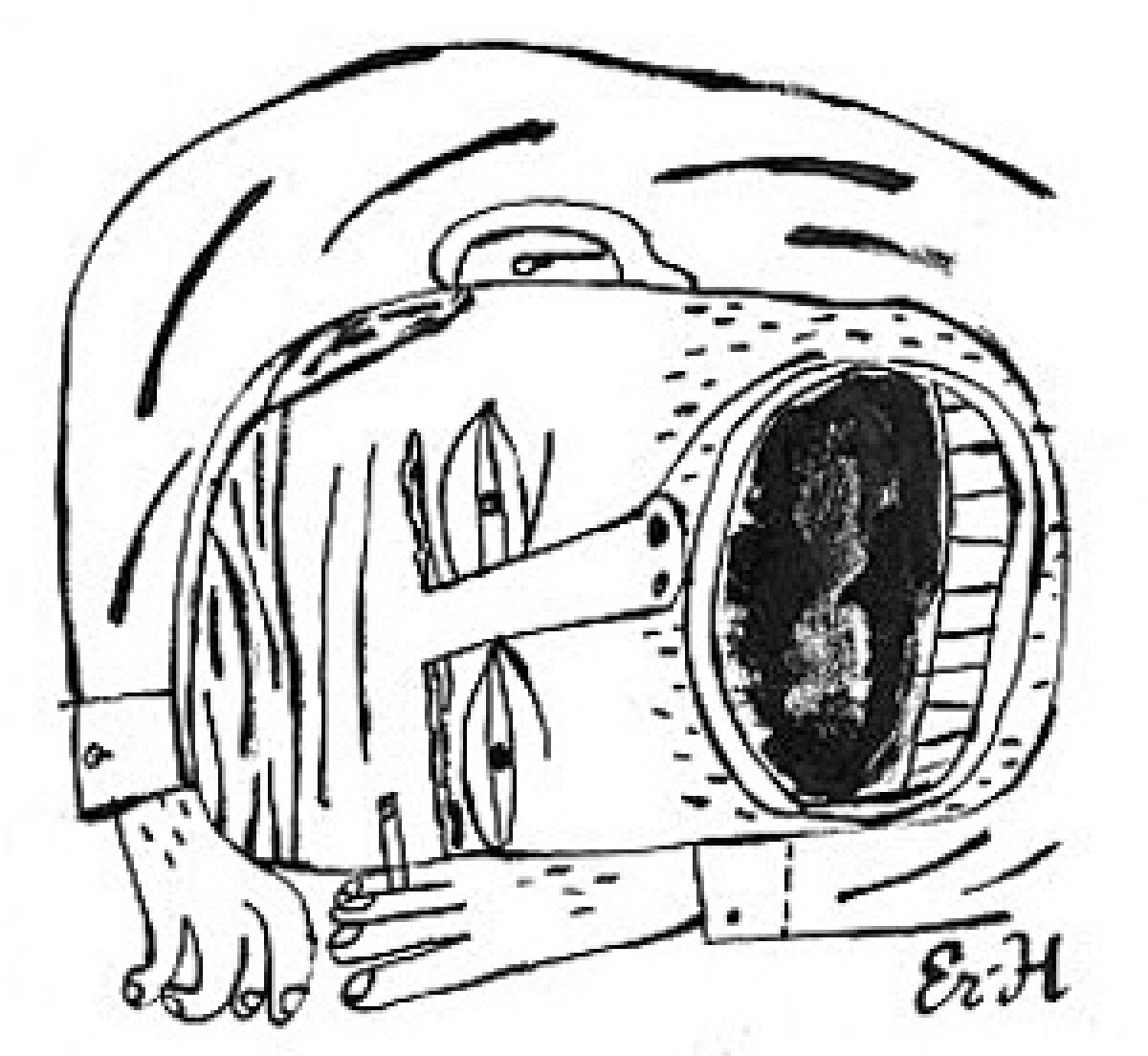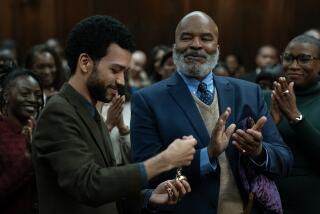‘The Ask: A Novel’ by Sam Lipsyte

The Ask
A Novel
Sam Lipsyte
Farrar, Straus & Giroux: 296 pp., $25
According to Santa Fe Institute economist Samuel Bowles, roughly one out of every four Americans is now employed guarding the wealth of the rich. This “guard labor” is loosely defined -- it could refer to George Clooney’s corporate enforcer in “Up in the Air” or a Wal-Mart rent-a-cop -- but it’s clear that anyone employed in this capacity is not making a productive contribution to society; their job is to maintain a rigorous enforcement of the status quo. Worse, anyone born into this indentured servitude is statistically unlikely to rise beyond it. It’s a perfectly (and permanently) rigged system.
Milo Burke, the self-loathing failed painter who narrates Sam Lipsyte’s “The Ask,” fits squarely into this economic model. As the story begins, he is tenuously employed as a development officer for the arts program of a third-tier New York City university. A good decade removed from his salad days at a cozy liberal-arts college, Milo now works to perpetuate the system that creates the losers who naively assume they “could become the icons wearing sunglasses in the dorm hall posters of the future, pioneers of jackass phenomena, ancestor gods of cool.” By coaxing monetary “gives” from a series of wealthy “asks,” Milo raises the funds to help clone this next generation of over-educated and underemployed drones. One bad day, when Milo’s resentment finally boils over, he insults the arrogant artist-daughter of a major donor and is immediately transported to the realm of the unemployed.
Like the vulgar, irremediable Lewis “Teabag” Miner of Lipsyte’s last novel “Home Land” -- perhaps one of the funniest books of the last decade -- Milo clings to the end of his rope, hemmed in by his neuroses, sexual hang-ups and crushing evidence of his own worthlessness. Unlike Teabag, Milo lacks the energy to put up a fight. And crucial to his desperate state of affairs, he’s also married with a 3-year-old son. So when Purdy Stuart -- one of “the undercover aristocrats mingling with the peasantry” back in college, now sitting atop an inherited throne raised above the embers of late capitalism -- unexpectedly comes calling, Milo is ready to submit to whatever the man with the cash has in mind. It turns out that this latest ask requires the obedient Milo to deliver hush money to Purdy’s illegitimate son, Don, an Iraq War veteran with titanium legs -- a far more tragic emblem of America’s dependence on guard labor.
On the strength of three previous novels, Lipsyte has fashioned himself as America’s bard of highly educated disgruntlement. Like Joseph Heller in “Catch-22,” this puppeteer of delusional creatures communicates despair through rapid-fire dialogue, several varieties of non sequitur and cleverly coiled punch lines. “Home Land” is unforgettably structured as a profane collection of rants delivered to the protagonist’s high school alumni newsletter. “The Ask” is a far more ambitious social comedy, couched in an economic anxiety that threatens grand-scale emasculation. Milo answers to a supervisor named Vargina; his son -- who stills breastfeeds -- regularly asks if they can “play guys”; his wife, feeling “touched out,” refuses to have sex with him; and his mother in New Jersey lives more contentedly with her female partner than she ever did with his unreliable father. When a character on the novel’s opening page refers to Americans as “the bitches of the First World,” it’s clear that the personal is meant to seem political. The end of male primacy is the end of empire. At least we’re not asked to mourn.
“Home Land” was so compressed, so forceful, so hilarious a distillation of one man’s psychic struggle that it felt less like a book than a performative tour de force. In Lipsyte’s attempt to broaden the scope of his satire, “The Ask” feels laborious and unfiltered, harnessing little of the previous novel’s narrative momentum. (At one point, as if anticipating the onset of reader boredom, Milo asks Purdy to “tell me your story in joke form.”) Some of Lipsyte’s set-pieces are exceedingly bizarre (and unfunny), and even the most disparate characters seem to be drawing upon the same vernacular -- which is to say, they all sound similarly repugnant. Don the ex-soldier makes sense as a plot device, but he reads like an offensive, grotesque caricature. Racist, crass, self-righteous and resentful, Don is also expected to serve as one of the novel’s emotional anchors.
Other targets of Lipsyte’s satire include Williamsburg loft dwellers, liberal-arts students, radical child-care providers and reality-TV aspirants, none of whom seem to fully warrant his targeted comic fury. Lipsyte’s writing too often echoes the sentiment of his antihero. Despite its apparent appeal to the have-nots -- society’s unwitting guardians of Other People’s Stuff -- “The Ask” delivers its articulation of class rage in a sometimes mean-spirited package.
That Milo concentrates the remainder of his contempt upon himself is a minor blessing. Lipsyte is at his best when imagining a flawed human being confronted with his own repulsiveness. Here’s Milo, after a romantic rebuff: “I watched her face register what I, and only I, it turned out, had been mulling, saw the surprise there, the disgust, the deeper disgust, the moral judgment, the slight flattery, the steepening dive into new realms of physical revulsion, followed by pity’s steadying hand.” It’s a bitter moment, and the details give it the ring of truth.
There’s an honest resignation at the core of this otherwise disappointing novel, evidenced by Milo’s arrival at a hard-fought epiphany. “Don’t save a little part of you inside yourself,” he tells his son. “Not even a scrap. . . . Squander it. Always squander it. Give it all away.”
Gottlieb writes about books and film for the Nation.
More to Read
The biggest entertainment stories
Get our big stories about Hollywood, film, television, music, arts, culture and more right in your inbox as soon as they publish.
You may occasionally receive promotional content from the Los Angeles Times.






